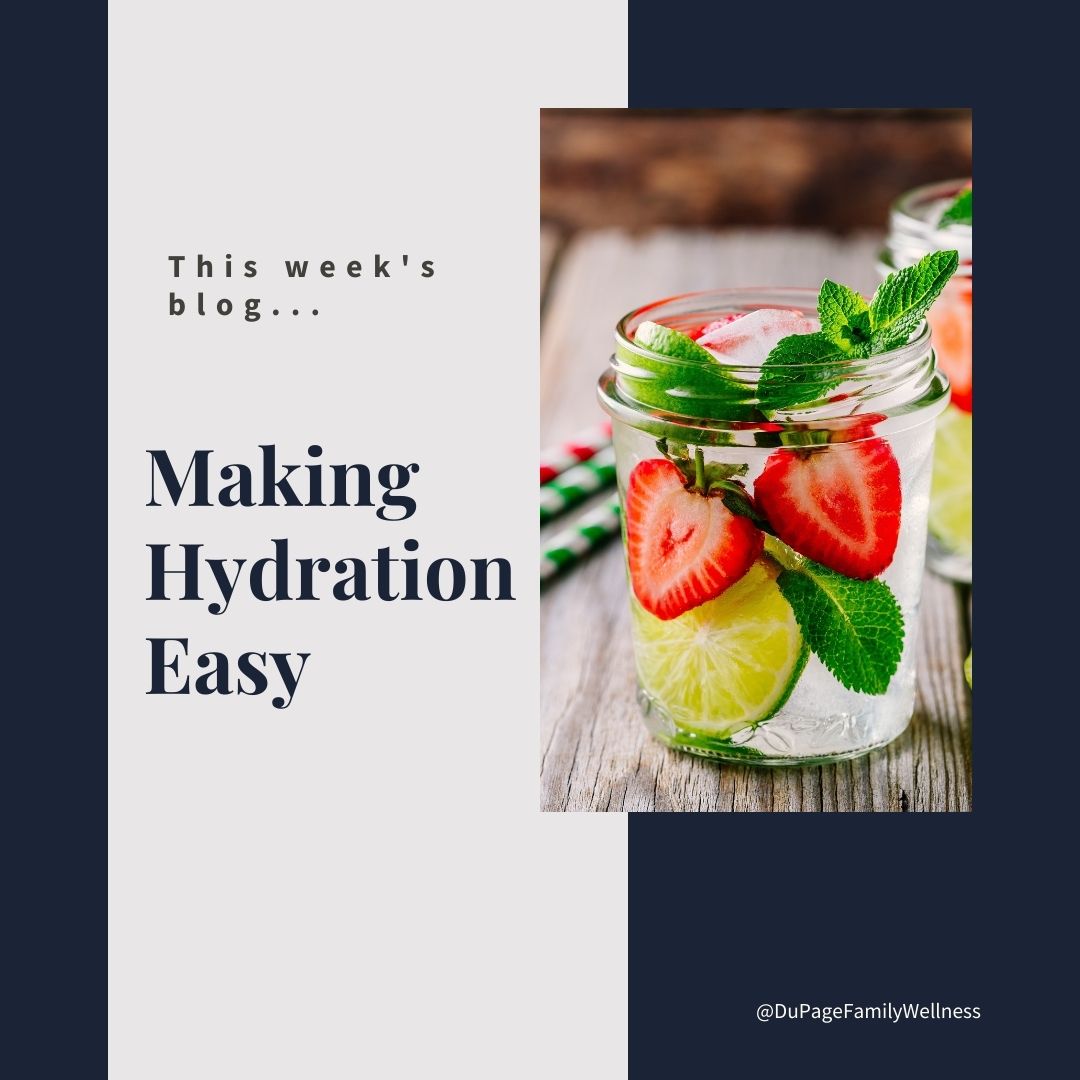 You may have heard of insulin resistance, but has anyone taken the time to explain what it is?
You may have heard of insulin resistance, but has anyone taken the time to explain what it is?
Often, we only think of blood sugar and insulin in the case of diabetes. But blood sugar and insulin have an important function in everyone’s body.
Did you know that if you are struggling with insulin resistance, it can make it REALLY EASY to gain weight and REALLY DIFFICULT to lose it (regardless of how much you are eating?!)
Let's look at this important process so we understand what is going on in our bodies and can make wise choices surrounding blood sugar and insulin.
The Connection Between Blood Sugar and Insulin
Our body functions best when our blood sugar is just under 100 (75-99). It will work to stay around that range by releasing the hormone insulin.
Insulin is what helps the sugar to go from our blood into our cells (Specifically liver, muscle, and fat cells). Pretend that our cells have doors on them, and the insulin is the key that opens those doors, allowing the sugar to go through the door into the cell.
When we eat food, especially carbohydrates, our blood sugar goes up. Our brain recognizes that there is too much sugar in the blood, so it releases insulin.
If the body is working at an optimal level, the insulin acts like a key and begins to open the cell's doors. The sugar is able to get in the cell, the blood sugar goes back to a comfortable level, and the sugar is stored in the cell for future use.
There is a nice cycle of getting hungry, signaling that your body needs sugar. Feeling full when your body gets the sugar into the cells. Feeling hungry when the body needs more sugar and so on.
When the Keys Don’t Work Well
If you have insulin resistance however, the insulin doesn’t work very well. It’s like the keys aren’t working. It may take 2-4 hours to open the doors when it should just take an hour.
When the brain notices the sugar is still in the blood and not in the cells, it decides it needs to do something about it. That’s when the brain tells the body to release more insulin and this results in an unhealthy level of insulin circulating through the body.
What actually causes Insulin Resistance? Here are just a few of the many possibilities
- Genetic Predisposition
- Vitamin and mineral deficiencies (Vitamin D and B12 to name a few)
- Toxic exposure (BPA in plastics and Agent Orange exposure are just 2 examples, but there are likely thousands)
- Having chronically elevated blood sugar
As you all should know by now, I love to relate everything to our ancestors. When we are looking at our ancestors through a lens of insulin resistance, there were certain times that it was actually beneficial to be more insulin resistant. Think about the seasons for example. When would our ancestors have eaten higher amounts of fruit/sugary substances? This would happen in the late summer as fruits are reaching their peak ripeness. Eating higher amounts of sugar (especially fructose in fruits) signaled to their bodies that it was time to start preparing for winter by putting on some body fat. This process allowed our ancestors to survive a winter when food was more scarce. Unfortunately for us, we constantly have access to high fructose/sugar foods, and almost never have a time that food is scarce. This is probably the most likely contributing factor to the fact that 88% of our population is not in ideal metabolic health.
Read more ...
 If you had a medical condition that could explain a number of your difficult symptoms, would you want to know? Most of us would, as long as we could find effective treatment for the condition and start feeling better.
If you had a medical condition that could explain a number of your difficult symptoms, would you want to know? Most of us would, as long as we could find effective treatment for the condition and start feeling better.
One group of women who could really benefit from knowing where their symptoms are coming from are those with Polycystic Ovary Syndrome (PCOS). PCOS is a hormonal disorder affecting 10% of women, but only half of them know that they have it. The other half have no idea what is causing their frustrating symptoms.
I’d like to invite you to learn just a little bit about PCOS. It is likely that you know at least one woman who is suffering from these symptoms without any idea that there are simple changes she can make to help!
Symptoms
Symptoms of PCOS may include one or all of the following…
- irregular cycles
- weight gain (especially around the middle)
- acne
- hair loss on the head
- hair growth on the face or in more of a traditional make pattern (hirsutism)
- sugar cravings and hangry attacks
- anxiety, depression and more
Many women with these symptoms feel like something is wrong with themself. They need to be told that it’s not their fault. Learning about PCOS and what is driving their symptoms can bring hope that they haven't had in a while.
Diagnosis
In order for a doctor to diagnose you with PCOS you need to meet at least two of the following criteria.
- Lack of ovulation causing irregular (or no) periods.
- Higher androgen (male hormones) that may result in acne, hair loss on the head, hair growth on the face and back. This can be tested via labs, or simply visible in symptoms.
- Multiple small cysts on the ovaries visible on ultrasound.
This means that you don’t have to have cysts on your ovaries to have PCOS!
What Next?
While there is no cure for PCOS, there are many things you can do to address the root causes of the condition and control your symptoms. For many women with PCOS the root cause may be any combination of the following issues
- insulin resistance
- thyroid
- adrenals
- inflammation
When the underlying cause(s) are addressed, many of the symptoms will become manageable and even disappear altogether.
I love helping women with PCOS understand their bodies better and walk with them on their journey to health. If you or someone you love wants more information on PCOS, consider signing up for our free online PCOS class or joining our FREE Facebook group.
Dr. Jamie
*Not all doctors are equipped to make this diagnosis, so it can be valuable to work with a specialist. Please feel free to reach out to me. I would be glad to lead you in getting an accurate diagnosis.
 Between work, activities, and family, life can feel pretty overwhelming!
Between work, activities, and family, life can feel pretty overwhelming!
You may feel like there aren’t enough hours in the day, so there simply isn’t time to get a good night’s sleep. But sleep is one of the most fundamental functions we do each day.
Without good sleep you will not only feel terrible, but you will begin to damage your body.
So, how do you get a good night’s sleep when you have so much on your plate?
Let’s dive into that question and see what we can do to increase the quality of our sleep.
A Quick Reminder
Sleep hygiene is really important, but no amount of sleep hygiene will help if you don’t allow enough time for sleep!
Research has shown that the average person needs anywhere from seven to nine hours of sleep per night. This varies from person to person, so if you haven’t done the exercise from last week’s blog you may want to.
Your Exposure to Light
Circadian rhythm and the sleep/wake cycle can really be affected by light. Most people think this means making sure your room is dark when you go to sleep, but there is more to it than that.
Your light exposure matters from the moment you get up in the morning. Research has shown that getting bright light in the morning is the most important habit in getting a good night’s sleep. The morning light helps reset your circadian rhythm, setting you up for a good night’s sleep.
If you are in an area that doesn’t have a lot of natural light in the morning you can use a light machine in replace of the sunshine. It won’t give you all the health benefits, but it is a good alternative when necessary.
Read more ...
 Between work, activities, and family, life can feel pretty overwhelming. You may feel like there aren’t enough hours in the day, so there simply isn’t time to get a good night’s sleep. But sleep is one of the most fundamental functions we do each day.
Between work, activities, and family, life can feel pretty overwhelming. You may feel like there aren’t enough hours in the day, so there simply isn’t time to get a good night’s sleep. But sleep is one of the most fundamental functions we do each day.
Without good sleep you will not only feel terrible, but you will begin to damage your body. So, how much sleep do you need, and how can you tell if you are getting enough?
Let’s dive into that question and see what your body needs to function at its best.
Sleep Research
Researchers took a group of people, put them in a stimulus free room for 14-24 hours a day, and monitored their sleep. There were no clocks, so subjects didn’t know when they were going to bed or waking up.
The first couple days of the study, sleep times averaged 12-20 hours per night! This seems to indicate that many of the subjects were in a “sleep debt” going into the study, meaning their bodies were trying to catch up from chronic under sleeping.
Over a few days, the participants' sleep began to average approximately 8 hours a night (with some sleeping more, and some sleeping less).
How Much Sleep Is Right for Me?
Since everyone’s body is different, let’s look into how you can determine how much sleep your body needs?
Sleep researchers have noted that decreasing sleep time has a strong impact on reaction time and other mental functions. You can use “reaction time” to determine if the number of hours that you are sleeping is ideal for you.
Read more ...
 You’ve heard that you should get eight glasses of water a day, but is that really correct?
You’ve heard that you should get eight glasses of water a day, but is that really correct?
In their book Quench, authors Cohen and Bria explain that “for many years, we’ve operated with the assumption that the path to hydration was drinking eight glasses of water daily—the picture is actually much more complex.”
Let’s explore this theory and see if there is a way to work smarter rather than harder when with our hydration.
Background
Gina Bria was an anthropologist studying how desert cultures survived with very little water when she got a call from her mother’s care facility.
She was dismayed to hear that her mother was suffering from chronic dehydration. Bria decided to delve into her research to see if there was anything that she could learn from the desert cultures to help her mom.
Bria learned from her research that the Tarahumara people of Mexico used chia seeds to aid in hydration. Deciding to adapt this practice for her mother, she used her coffee grinder to turn some chia seeds into powder and instructed the caregiver to add it to her mom’s orange juice each morning.
That did the trick, and her mom did not have any more issues with chronic dehydration. This encouraged her to research a form of hydration known as “gel water.”
What Is Gel Water?
Read more ...
 You may have heard of insulin resistance, but has anyone taken the time to explain what it is?
You may have heard of insulin resistance, but has anyone taken the time to explain what it is? 

 If you had a medical condition that could explain a number of your difficult symptoms, would you want to know? Most of us would, as long as we could find effective treatment for the condition and start feeling better.
If you had a medical condition that could explain a number of your difficult symptoms, would you want to know? Most of us would, as long as we could find effective treatment for the condition and start feeling better. Between work, activities, and family, life can feel pretty overwhelming!
Between work, activities, and family, life can feel pretty overwhelming!  Between work, activities, and family, life can feel pretty overwhelming. You may feel like there aren’t enough hours in the day, so there simply isn’t time to get a good night’s sleep. But sleep is one of the most fundamental functions we do each day.
Between work, activities, and family, life can feel pretty overwhelming. You may feel like there aren’t enough hours in the day, so there simply isn’t time to get a good night’s sleep. But sleep is one of the most fundamental functions we do each day.  You’ve heard that you should get eight glasses of water a day, but is that really correct?
You’ve heard that you should get eight glasses of water a day, but is that really correct?